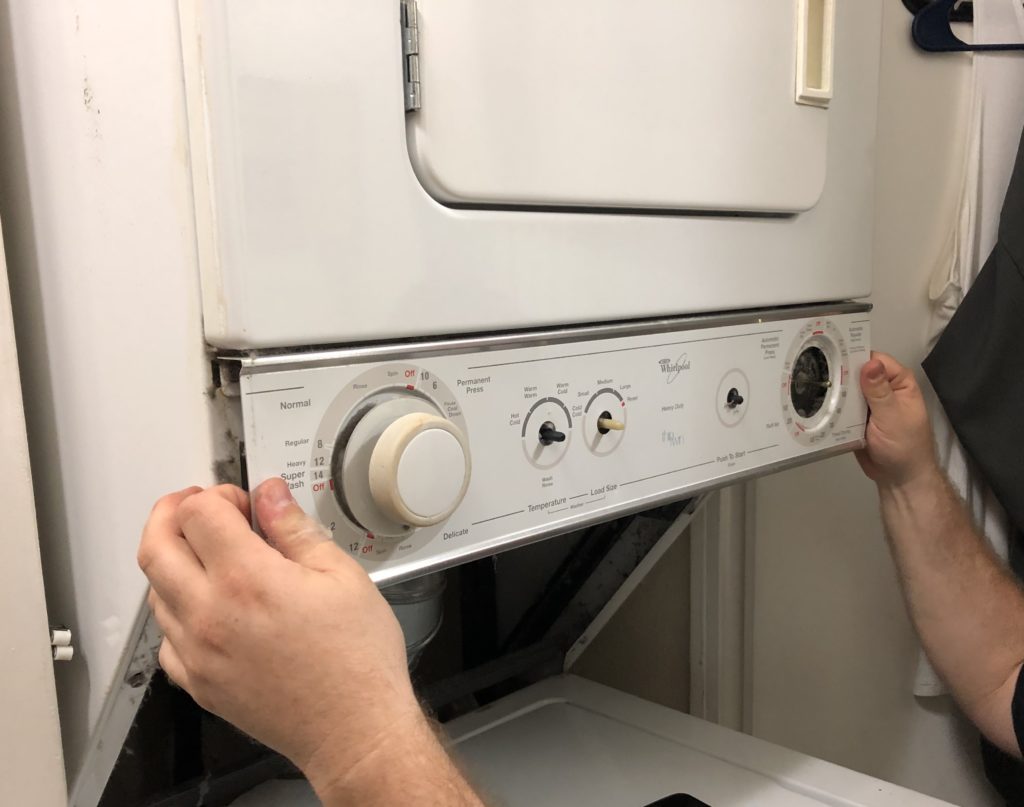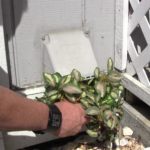
Photo: FixEm Appliance Repair ©2020
Like most people, you’ve likely experienced the inconvenience of an appliance failure. Whether your washer stopped washing or your refrigerator stopped refrigerating, you may have been surprised at the impact it had on your daily routine.
While appliance failure sometimes stems from a manufacturer defect, it more commonly results from a lack maintenance. All appliances require some level of maintenance to sustain optimal performance and achieve their expected lifespan. Unfortunately, homeowners often ignore maintenance until a failure occurs, which results in inconvenience and additional expenses for repairs or replacement.
Fortunately, an appliance failure rarely poses a threat of danger. There’s just one exception: dryers. Due to the combination of heat and combustible materials, an unmaintained dryer poses a very real threat of fire. In fact, thousands of house fires occur every year due to dryers that aren’t properly maintained.
This makes dryers the only home appliance that must be maintained. You can ignore your other appliances and deal with the consequences in stride, but you ignore your dryer at your own peril.
How Do You Maintain a Dryer?
Fortunately, dryer maintenance isn’t too complex. Here are three steps to address:
- Lint trap cleaning
The lint trap is a small compartment where loose lint is captured while clothes are drying. This trap should be cleaned following each drying cycle. Despite the ease of lint trap cleaning, Mo Spund of FixEm Appliance Repair says a surprising amount of people neglect this step. “Besides increasing the risk of fire, an unemptied lint filter can lower operating efficiency and result in longer drying times. Plus, when the filter is full, it can’t properly capture lint, which will instead end up all over your freshly dried clothes.”
- Exhaust vent inspection and cleaning

In addition to cleaning your dryer’s exhaust line, check for exterior vent obstructions. Photo: Best Chimney Sweep ©2020
A common maintenance issue with dryers is when the exhaust vent becomes blocked. This can be caused by a number of factors, including a crimp in the exhaust line, an excess of lint buildup or an outside obstruction of the vent. The subsequent lack of air flow results in reduced dryer performance, but the bigger concern here is the increased risk of fire.
To remove this risk, you’ll need to inspect and clean your dryer’s exhaust vent on a regular basis—at least once a year. Pull the dryer out from the wall and detach the exhaust line. Use a dryer vent brush to thoroughly clean the line and remove all lint buildup inside. If your hose is made of a pliable material, check to ensure it isn’t being crimped or crushed in any way, as this will constrict air flow. Finally, go outside and check the exterior of the vent for any foreign objects that may be causing an obstruction.
- Professional dryer maintenance
Despite regular cleaning of the lint trap and vent, dust and lint can accumulate inside a dryer’s moving parts over time. Besides increasing the risk of fire, this buildup can inhibit the operation of moving parts and shorten their lifespan. During a professional maintenance service, a technician will completely disassemble the dryer and remove buildup from within the drum, bearings, and other components. This will help extend your dryer’s operating lifespan and protect your home from fire risk.
Find a Diamond Certified appliance repair and maintenance professional in your area
